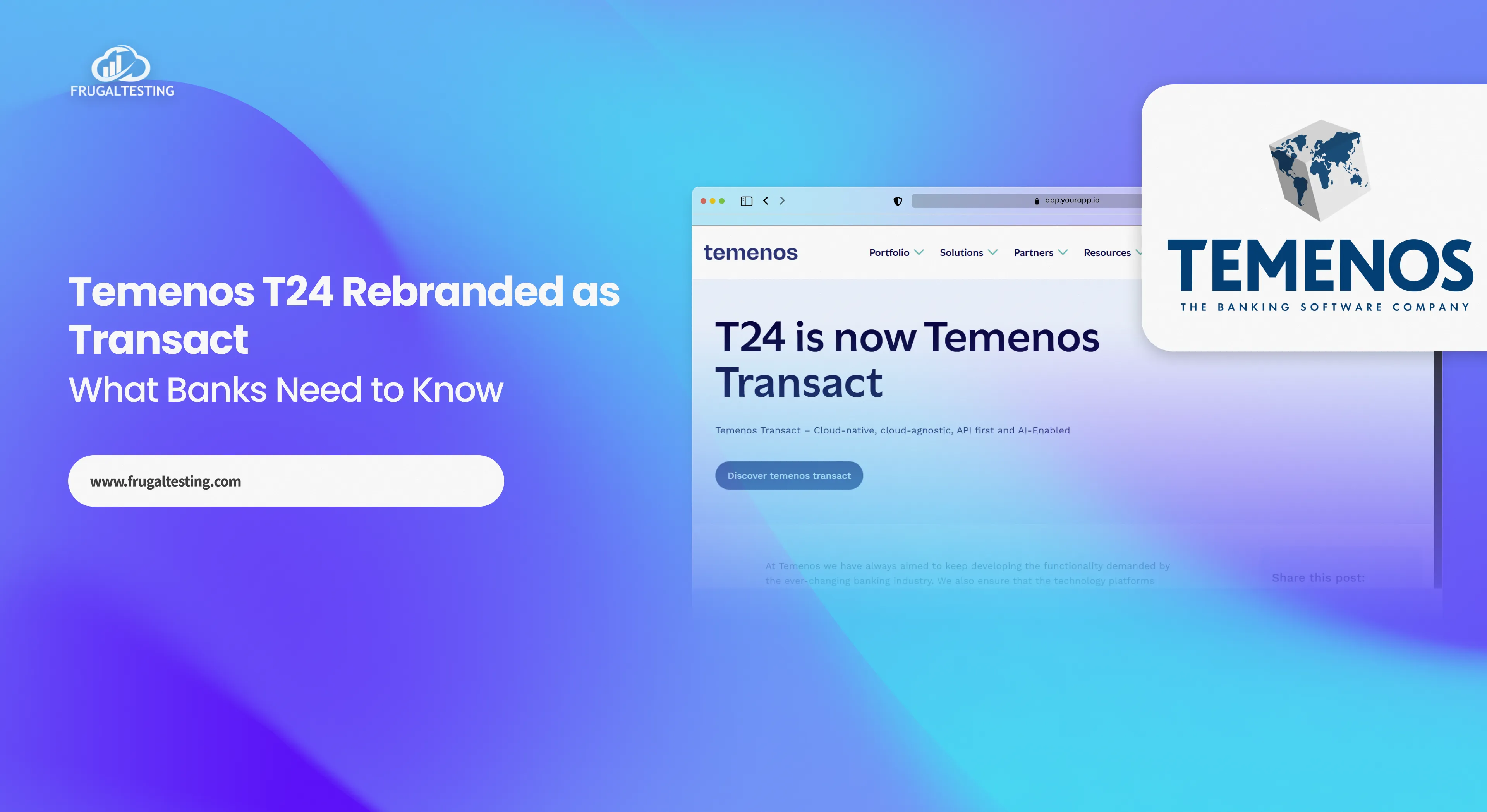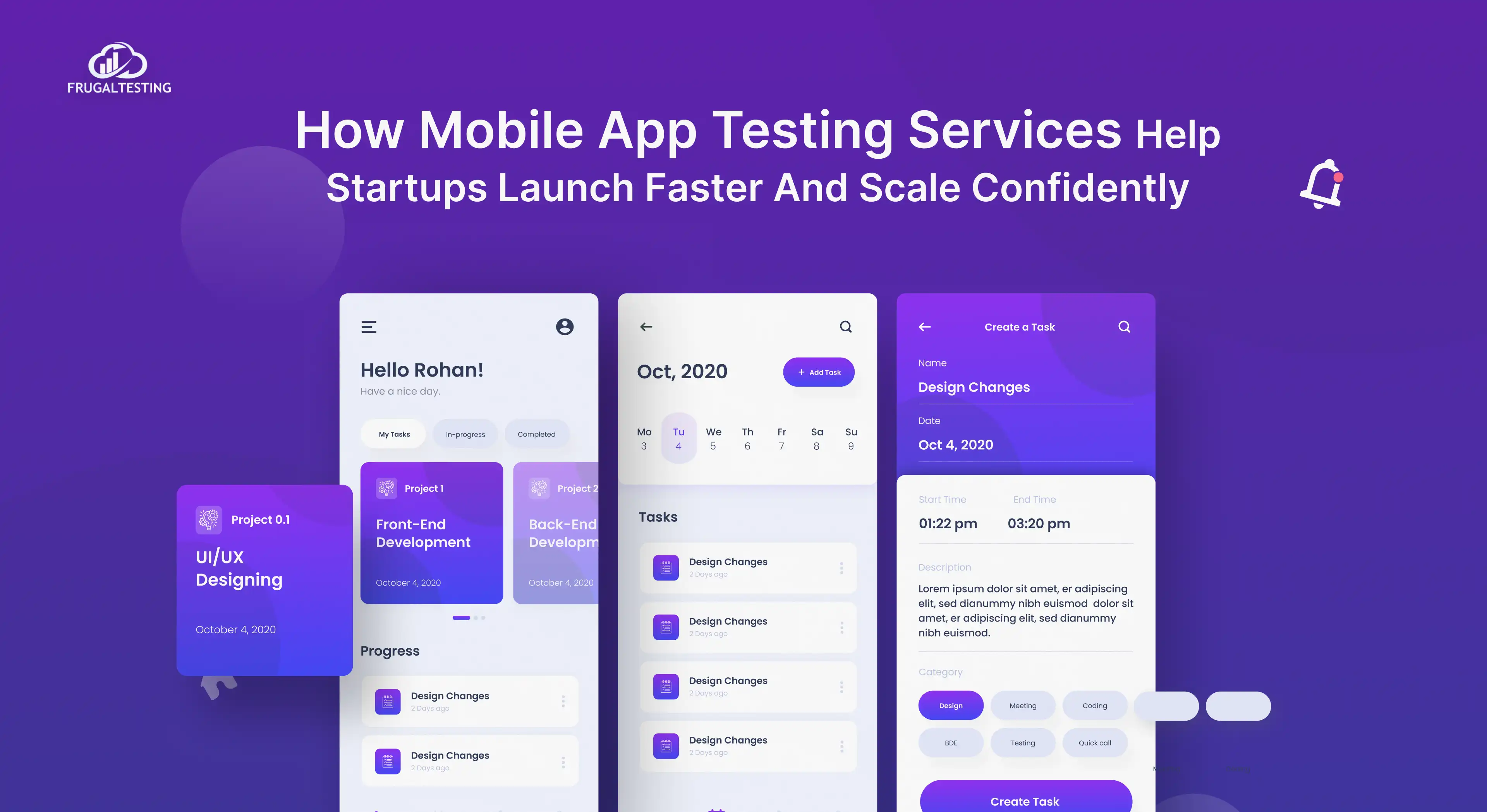Delivering flawless software solutions is paramount for businesses to stay competitive. However, achieving this goal requires comprehensive testing, a process that demands time, resources, and expertise. This is where outsourcing software testing comes into play.
📌 Efficiency Through Outsourcing: Outsourcing software testing enables companies to streamline their development process.
📌 Importance of Outsourcing: Outsourcing software testing is important for innovation, and collaboration.
📌 Types of Testing: Various types of testing can be outsourced
📌 Difference Between Outsourcing and Offshoring: Outsourcing involves contracting out tasks to external software testing companies, while offshoring specifically refers to relocating operations to foreign countries.
📌 Efficient Outsourcing Strategies: Efficient outsourcing requires implementing quality assurance processes.
📌 Engagement Models: Engagement models include fixed price, time and materials, dedicated team, build-operate-transfer, risk-sharing, hybrid models.
📌 Pros and Cons: Pros and cons of outsourcing.
By delegating testing activities to specialized vendors, companies can streamline their development process, accelerate time-to-market, and ensure high-quality deliverables. Let’s explore the intricacies of outsourcing software testing services and discover how it can empower your business to achieve its objectives efficiently and effectively.

What is Software Testing outsourcing?
Software testing outsourcing refers to the practice of delegating the testing activities of a software development project to an external third-party vendor, project manager, or organization. Instead of conducting testing in-house, companies choose to outsource these tasks to specialized testing service providers.
Here's how software testing outsourcing typically works:
- Scope Definition: The company identifies the scope of testing required for their software product or application.
- Vendor Selection: The company selects an outsourcing vendor with the necessary expertise and resources to perform the testing activities effectively.
- Agreement and Contracts: Both parties negotiate and establish agreements regarding the scope of work, timelines, deliverables, quality standards, and pricing.
- Transfer of Requirements: The company provides the outsourcing vendor with the necessary documentation, requirements, access to software builds, and any other relevant information required for testing.

- Testing Execution: The outsourcing vendor conducts various testing activities such as functional testing, regression testing, performance testing, security testing, etc., according to the agreed-upon scope.
- Reporting and Communication: The outsourcing vendor communicates regularly with the company, providing updates on testing progress, issues discovered, and any other relevant information.
- Issue Resolution: If defects or issues are found during testing, the outsourcing vendor reports them to the company for resolution. Sometimes, the outsourcing vendor may also assist in troubleshooting and debugging.
- Quality Assurance: The outsourcing vendor ensures that the software meets the specified quality standards and adheres to the requirements outlined by the company.
- Delivery of Results: Once testing is completed, the outsourcing vendor delivers comprehensive test reports, documentation, and any other deliverables as per the agreement.
- Closure and Evaluation: The company evaluates the testing results and provides feedback to the outsourcing vendor. They may also conduct a post-mortem to analyze the effectiveness of the outsourcing arrangement and identify areas for improvement.

Why Is Outsourcing Software Important?
Outsourcing software testing can be important for several reasons:
- Expertise: Outsourcing allows you to tap into the expertise of dedicated testing professionals who specialize in identifying and resolving software issues.
- Cost-effectiveness: Outsourcing can be more cost-effective than maintaining an in-house testing team, especially if you don't require full-time testers.
- Focus on core activities: By outsourcing testing, your internal team can focus on core development activities, improving efficiency and productivity.

- Scalability: Outsourcing offers scalability, allowing you to adjust testing resources based on project needs without the overhead of hiring and training new employees.
- Access to tools and technologies: Outsourcing partners often have access to advanced testing tools and technologies that may be too costly for individual organizations to invest in.
- Faster time-to-market: With dedicated testing resources, you can expedite the testing process, reducing time-to-market for your software products or updates.

Exploring Software Testing Offshore: Testing Types and Approaches
When exploring software testing services offshore, it's essential to understand the types of testing and approaches commonly employed. Here are some key testing types of software testing tools and services and approaches that can be outsourced offshore:
Types of Software Testing:
👉🏻Functional Testing: This type of testing focuses on verifying that the software functions according to its specifications. It involves testing individual functions or features of the software to ensure they work as intended.
👉🏻Regression Testing: Regression testing ensures that recent changes or enhancements to the software have not adversely affected existing functionality. It involves retesting previously tested features to validate that they still work correctly.
👉🏻Performance Testing: Performance testing evaluates the responsiveness, stability, scalability, and reliability of the software under various load conditions. It includes tests such as load testing, stress testing, and scalability testing.
👉🏻Performance Testing: Security testing assesses the software's ability to protect data and systems from unauthorized access, breaches, and vulnerabilities. It involves testing for vulnerabilities, threats, and compliance with security standards.
👉🏻API Testing: API (Application Programming Interface) testing verifies the functionality, reliability, security, and performance of APIs used in software applications. It involves testing API endpoints, request/response formats, error handling, authentication mechanisms, and integration with other systems.
👉🏻Mobile Testing: Mobile testing focuses on testing mobile applications (native, web, or hybrid) across different mobile devices, platforms (iOS, Android), screen sizes, resolutions, and network conditions. It ensures that mobile apps deliver a consistent and optimal user experience across diverse mobile environments.

👉🏻Usability Testing: Usability testing evaluates the software's user interface (UI) and user experience (UX) to ensure it is intuitive, easy to use, and meets user needs and expectations. Usability testing is also a critical aspect of mobile testing (mobile app testing).
👉🏻Compatibility Testing: Compatibility testing checks the software's compatibility with different operating systems, devices, browsers, and environments to ensure consistent performance across various platforms. Compatibility testing is important in different testing phases in the software development process.
👉🏻Localization and Internationalization Testing: Localization testing verifies that the software is adapted to specific languages, cultures, and regions, while internationalization testing ensures that the software is designed to be easily localized.
👉🏻Automated Testing: Automated testing (automation testing) involves using automated tools and scripts to execute test cases, verify functionality, and identify defects efficiently. It helps accelerate testing processes and improve test coverage.
👉🏻Manual Testing: Manual testing and automated testing (automation testing) are two essential components of the software quality testing process, each serving distinct purposes and offering unique advantages. Manual testing, a fundamental part of the software testing process, can also be outsourced as part of these services.
👉🏻Penetration Testing: Penetration testing, also known as pen testing or ethical hacking, is a security testing methodology designed to identify and exploit vulnerabilities in a software system or network infrastructure.

Approaches to Offshore Software Testing
- Project-based Outsourcing: In this approach, companies outsource specific testing projects or tasks to offshore vendors for a defined period or scope. It provides flexibility and scalability, allowing companies to access specialized expertise for short-term testing needs.
- Dedicated Team Outsourcing: Dedicated team of experts outsourcing involves establishing a long-term partnership with an offshore testing external team dedicated to the company's projects. This approach provides continuity, consistency, and access to a dedicated pool of resources.
- Managed Testing Services: Managed testing services offer end-to-end testing solutions managed by offshore vendors, including test strategy, planning, execution, and reporting. It provides comprehensive testing coverage and expertise while allowing companies to focus on their core business activities.
- Crowdsourced Testing: Crowdsourced testing involves leveraging a community of external team of testers from diverse backgrounds and locations to perform testing activities. It provides access to a large pool of software testers and real-world testing scenarios. Crowdsourced testing can significantly contribute to achieving various business goals.
- Onshore-Offshore Hybrid Model: This model combines onshore and offshore resources to optimize testing efforts. Companies may utilize onshore resources for tasks requiring close collaboration and communication while leveraging offshore resources for scalable and cost-effective testing activities.

Difference between outsourcing and offshoring
Outsourcing and offshoring are often used interchangeably, but they refer to different concepts within the realm of business operations:

How can software Testing be efficiently outsourced?
Efficiently outsourcing software testing requires careful planning, effective communication, and collaboration between the outsourcing vendor and the client company. Here are several steps and strategies to ensure efficient software testing outsourcing:
- Define Clear Requirements and Objectives: Clearly define the scope of the testing project, including objectives, timelines, deliverables, and quality standards.
- Choose the Right Vendor: Select a reputable outsourcing vendor with relevant experience, expertise, and a proven track record in software testing.
- Establish Clear Communication Channels: Establish clear and open communication channels between the client company and the outsourcing vendor.
- Provide Access to Resources and Information: Ensure that the outsourcing vendor has access to the necessary resources, tools, software, test environments, and documentation required for testing.
- Establish Quality Assurance Processes: Define quality assurance processes and standards to ensure that the testing activities meet the desired quality levels.

Which models are used in software outsourcing?
In software outsourcing, various engagement models are used to govern the relationship between the client company and the outsourcing vendor. These models define the terms of collaboration, including project scope, responsibilities, payment structure, and risk-sharing arrangements. Some common engagement models used in high-quality software outsourcing include:
- Fixed Price Model :
- Client and vendor agree on a fixed price for the project.
- Suitable for well-defined projects with stable scope.
- Time and Materials Model (T&M) :
- Client pays based on actual time and resources expended.
- Offers flexibility for evolving project requirements.
- Dedicated Team Model :
- Client hires a dedicated external team from the vendor.
- Provides control over an external and internal team's activities, suitable for long-term projects.
- Build-Operate-Transfer (BOT) Model :
- Vendor builds and operates a dedicated development center.
- Ownership transferred to client after establishment.
- Risk-Sharing Models :
- Both client and vendor share risks and rewards.
- Includes profit-sharing, revenue-sharing, or gain-sharing mechanisms.
- Hybrid Models :
- Combine elements of multiple models.
- Offers flexibility to tailor the engagement to specific project needs.

The pros and cons of Software Outsourcing
Here are the pros and cons of software outsourcing:
Pros:
- Cost Savings: Outsourcing software development can often be more cost-effective than hiring an in-house team.
- Access to Global Talent: Outsourcing allows companies to access a global talent pool and tap into specialized skills and expertise not available locally.
- Scalability and Flexibility: Outsourcing offers scalability and flexibility, allowing companies to quickly scale up or down resources based on project needs.
- Focus on Core Competencies: Outsourcing non-core activities such as software development enables companies to focus on their core competencies and strategic initiatives.
- Accelerated Time-to-Market: Outsourcing can accelerate the time-to-market for high-quality products and services by leveraging the expertise and resources of outsourcing partners.
- Access to Latest Technologies: Outsourcing vendors often invest in the latest testing technologies, tools, and testing methodologies.
- Risk Mitigation: Outsourcing can help mitigate risks associated with software development, such as project delays, budget overruns, and talent shortages.
Cons:
- Communication Challenges: Differences in time zones, languages, and cultures can lead to communication challenges between the client and the outsourcing vendor.
- Quality Concerns: Maintaining quality standards and ensuring alignment with client expectations can be challenging in outsourcing arrangements.
- Loss of Control: Outsourcing involves relinquishing control over certain aspects of the project to external vendors.
- Dependency on Vendor: Companies may become overly reliant on outsourcing vendors for critical functions or expertise.
- Security Risks: Outsourcing sensitive data or intellectual property to external vendors may pose security risks.
- Hidden Costs: While outsourcing can lead to cost savings, there may be hidden costs associated with contract negotiations, management overhead, and unforeseen project complexities.
- Loss of Organizational Knowledge: Outsourcing certain functions may lead to a loss of organizational knowledge and expertise within the company.

Explore some examples of outsourcing
Here are some examples of outsourcing in various industries:
📍Information Technology (IT) Outsourcing:
- Application Development: Companies may outsource the development of software applications to external vendors, especially for projects requiring specialized expertise or capacity.
- Infrastructure Management: Outsourcing IT infrastructure management tasks such as network maintenance, server management, and data storage to managed service providers.
- Help Desk and Technical Support: Outsourcing customer support services, including help desk support and technical assistance, to call centers or support agencies.
📍Business Process Outsourcing (BPO):
- Customer Service: Companies often outsource customer service functions such as inbound/outbound calls, email support, and live chat to call centers or BPO firms.
- Human Resources (HR): Outsourcing HR functions such as payroll processing, recruitment, benefits administration, and employee training to HR outsourcing providers.
- Finance and Accounting: Outsourcing finance and accounting tasks such as bookkeeping, accounts payable/receivable, financial reporting, and tax preparation to accounting firms or BPO providers.
📍Software Development Outsourcing:
- Offshore Software Development: Companies outsource software development projects to offshore development teams or outsourcing vendors, leveraging lower labor costs and access to specialized skills.
- Mobile App Development: Outsourcing the development of mobile applications for various platforms (iOS, Android) to external development firms or freelance developers.
- Testing and Quality Assurance: Outsourcing software testing and quality assurance tasks such as functional testing, regression testing, and performance testing to testing service providers.

Challenges You May Face in Outsourcing
Outsourcing can offer numerous benefits, but it also presents several challenges that companies may face. Some of the key challenges include:
👉🏻Communication Barriers: Differences in language, culture, and time zones can lead to communication barriers between the client company and the outsourcing vendor.
👉🏻Quality Control: Maintaining consistent quality standards across geographically dispersed teams can be challenging.
👉🏻Loss of Control: Outsourcing involves relinquishing control over certain aspects of the project to external vendors.
👉🏻Security Risks: Outsourcing sensitive data, intellectual property, or proprietary information to external vendors may pose security risks.
👉🏻Dependency on Vendor: Companies may become overly reliant on outsourcing vendors for critical functions or expertise.

16 Outsourcing Companies in the World 2024
Here are 16 outsourcing companies. These companies provide various outsourcing services across different domains including IT, business process outsourcing, testing services, consulting, and more:
👉🏻Frugal Testing: Offers cost-effective software testing solutions.
👉🏻Accenture: A global professional services company providing strategy, consulting, digital, technology, and operations services.
👉🏻IBM Global Services: Provides artificial intelligence and IT consulting and outsourcing services.
👉🏻Infosys: A multinational corporation providing business consulting, information technology, and outsourcing services.
👉🏻Tata Consultancy Services (TCS): A leading IT services, consulting, and business solutions organization.
👉🏻Cognizant Technology Solutions: Offers IT consulting, digital, technology, and business process outsourcing services.
👉🏻Wipro Limited: Provides IT, consulting, and business process services.
👉🏻HCL Technologies: A multinational IT services company offering software development, business process outsourcing, and infrastructure services.
👉🏻Capgemini: Provides consulting, technology, professional, and outsourcing services.
👉🏻DXC Technology: Offers IT services, consulting, and outsourcing solutions at a reasonable price.
👉🏻Tech Mahindra: A multinational IT services and consulting company.
👉🏻Genpact: A global professional services firm focusing on delivering digital transformation services.
👉🏻Atos: Provides digital transformation, consulting, and IT services.
👉🏻LTI (Larsen & Toubro Infotech): IT services and solutions provider at a reasonable price.
👉🏻NTT Data: Offers IT services and consulting.
👉🏻CGI: Provides IT and business consulting, systems integration, and outsourcing services.
Bottom Line
Outsourcing software testing is not merely a cost-saving strategy but a transformative approach to software development. By leveraging the domain experts and the expertise of external vendors, companies can navigate complex exploratory testing requirements, mitigate risks, and optimize their development processes.
Outsourcing software testing is helpful because it can make sure your software follows the rules, works correctly, and gets ready to launch faster. It's good for any business, big or small.

People also ask.
👉🏻Why do IT companies prefer to outsource software testing?
IT companies outsource software testing to reduce costs, access specialized expertise, and improve efficiency.
👉🏻When outsourcing software testing, what should you look for?
When outsourcing software testing, look for expertise, reliability, communication, and adherence to security standards.
👉🏻What security measures should be in place when outsourcing software testing?
Security measures should include non-disclosure agreements, secure data transfer protocols, access controls, and compliance with industry regulations like GDPR and HIPAA.
👉🏻How does the software testing outsourcing process work?
The software testing outsourcing process involves defining requirements, selecting a vendor, establishing communication channels, executing tests, and reviewing results.
👉🏻Why Choose Us For Software Testing Outsourcing?
Choose us, Frugal Testing, for software testing outsourcing because of our expertise, cost-effectiveness, timely delivery, and commitment to quality assurance.





%201.webp)

